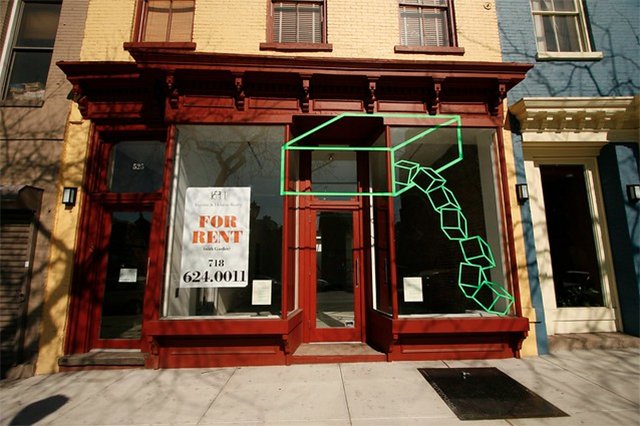In A Bid To Help Small Businesses, New York City Will Start Tracking Retail Vacancies
July 24, 2019, 4:30 p.m.
Three of the bills passed by the City Council on Tuesday require annual reporting on storefront vacancies, the business environment, and specific tracking of mom-and-pop shops.

In an attempt to respond to the well-chronicled struggles of small retailers, New York City will begin compiling a database of storefronts that will track vacancies and hopefully prompt future policies toward aiding small business owners.
The city has been in the grips of a vacancy crisis, which has been largely attributed to rising rents and the dominance of online retailers. With the passage of five bills on Tuesday, the City Council is hoping to gain a better understanding of the problem. Three of the bills require annual reporting on storefront vacancies, the business environment, and specific tracking of mom-and-pop shops. The data, which will be gathered by the Department of Finance, will include size as well as occupancy status and monthly rents if the property is being leased.
Two other bills task the city’s Department of Small Business Services with providing small businesses with training on regulation compliance and marketing.
Many have argued that small storefronts are an important part of the city's economic engine. A 2017 City Council analysis found that over 50,000 retail and restaurant businesses employ more than 600,000 people across the five boroughs.
"We have witnessed the loss of far too many small businesses in the last several years, leaving only empty storefronts behind," said City Council member Helen Rosenthal, who introduced the bill to track storefronts, in a press statement. "Losing this economic ladder limits opportunity, and contributes to New York City’s growing economic inequality."
Mayor Bill de Blasio is expected to sign the legislation into law. “We’re supportive of these measures and will continue to work with the Council to provide support for small business owners across our city," said a City Hall spokesperson.
Community groups as well as small business advocates have largely been in support of the legislation. Among those who signed on to the bills were the Association for Neighborhood & Housing Development, UWS Save Our Stores, Cooper Square Committee, Fourth Arts Block, the NYC Artist Coalition, and Street Vendor Project.
Chris Doeblin, the owner of the independent book store chain Book Culture, said that despite some concerns he had about how the city would implement the tracking process and ensure the accuracy of the data, he believed the legislation was a step in the right direction.
“We need to have a lot of information,” he told Gothamist. “The most basic information is what’s open.”
In June, Doeblin wrote an open letter to city officials asking for help to keep the doors open at his four Book Culture branches, three in Manhattan and one in Long Island City. Citing rising payroll costs, he said he urgently needed $750,000 to pay vendors and publishers in order to restock the stores. Since that time, he has met with City Council members and state representatives, who he said referred him to various lending sources.
Last week, he decided to adopt a community banking approach, which has been used by small businesses, most notably by Greenlight Bookstore in Brooklyn. Under the plan, small lenders in the community agree to sign a contract providing Book Culture with loans at 4 percent interest and terms ranging from five to seven years.
The strategy allows Doeblin to use that money to repay some of his existing debt, which commands interest rates as high as 25 percent. To date, he has raised $140,000 from 34 sponsors.
While he described that as a good start, he added, "We're not out of the woods yet."